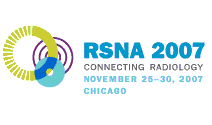
Abstract Archives of the RSNA, 2007
Byung-Joon Kim MD, Presenter: Nothing to Disclose
Hwan Hoon Chung, Abstract Co-Author: Nothing to Disclose
The current standard of care for deep vein thrombosis (DVT) is catheter-directed thrombolysis; however, the risk of major bleeding complications has been increased during venous thrombolysis. We evaluate the feasibility of a rapid and effective method of thrombus removal, with simultaneous percutaneous mechanical thrombectomy (MT) and thrombolysis.
Catheter-directed thrombolysis with adjunctive mechanical thrombectomy was used to treat 15 symptomatic limbs in 12 patients (15 procedures) with lower extremity DVT between March 2003 and March 2007. After an initial urokinase infusion (about 200,000 to 300,000 IU in amount) of 10 to 15 minutes, thrombus was treated by mechanical thrombectomy with use of Hoffman catheter device. Combined angioplasty and stent placement was performed after thrombectomy in patient with underlying anatomical lesion.
Complete thrombus removal was obtained in 13 procedures (86%), and partial resolution in the remaining 2 procedures (14%). Inciting occlusive lesions responsible for DVT were revealed 11 procedures, and angioplasty with stenting was performed. In the 2 procedures with partial resolution additional catheter-directed thrombolysis was carried out for 12 hours. There were no complications relevant to either MT or the short duration of lytic agent infusion. At average follow-up of 12.3 months (range, 1-36 months), 1 patients had recurrent ipsilateral DVT, and underwent repeat treatment.
In a preliminary experience, one-step catheter-directed thrombolysis followed by mechanical thrombectomy with/without early stent placement was safe and effective.
One-step pharmacomechanical thrombectomy can reduce a complication of thrombolytic agent (i.e. urokinase) and achieve an effective result.
Kim, B,
Chung, H,
One-step Pharmacomechanical Thrombectomy for Treatment of Symptomatic Lower Extremity Deep Vein Thrombosis: Feasibility Study. Radiological Society of North America 2007 Scientific Assembly and Annual Meeting, November 25 - November 30, 2007 ,Chicago IL.
http://archive.rsna.org/2007/5015747.html

